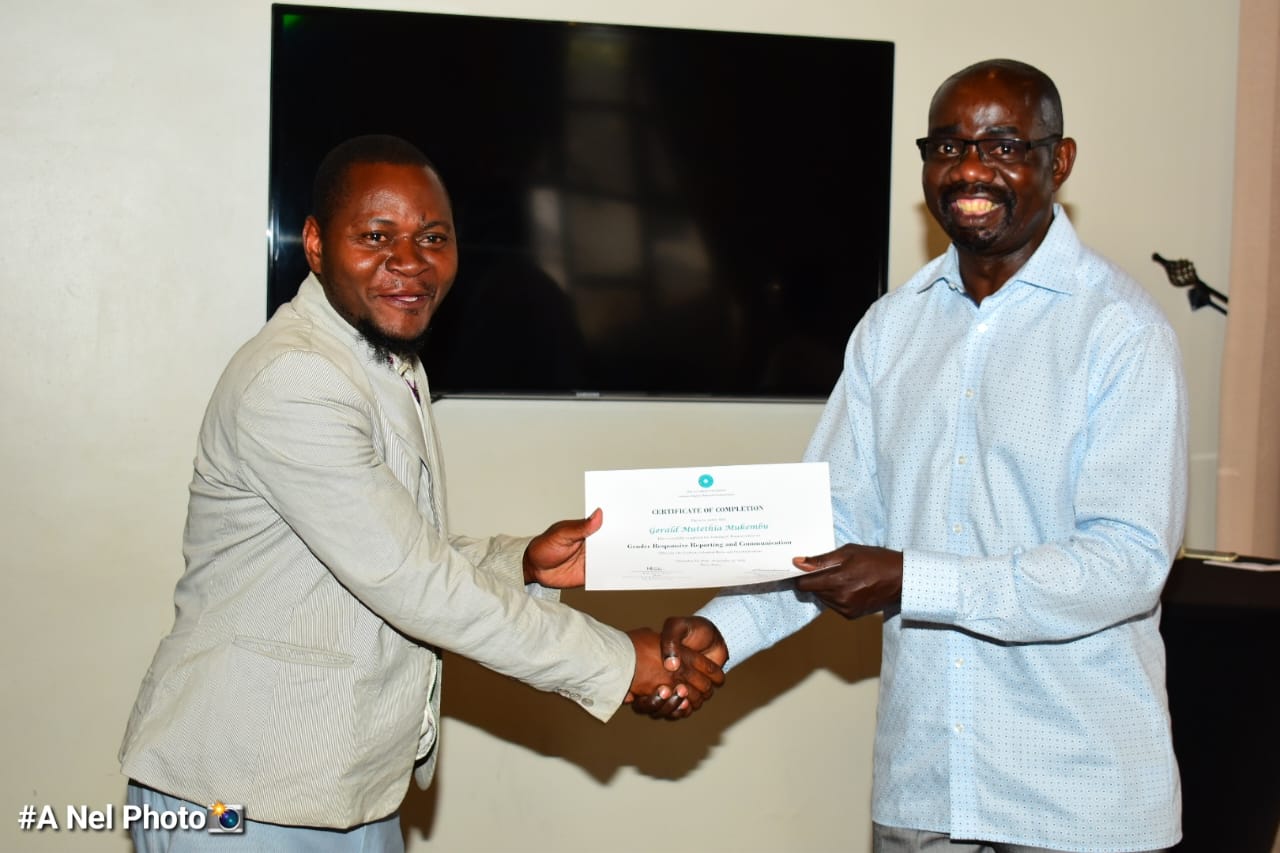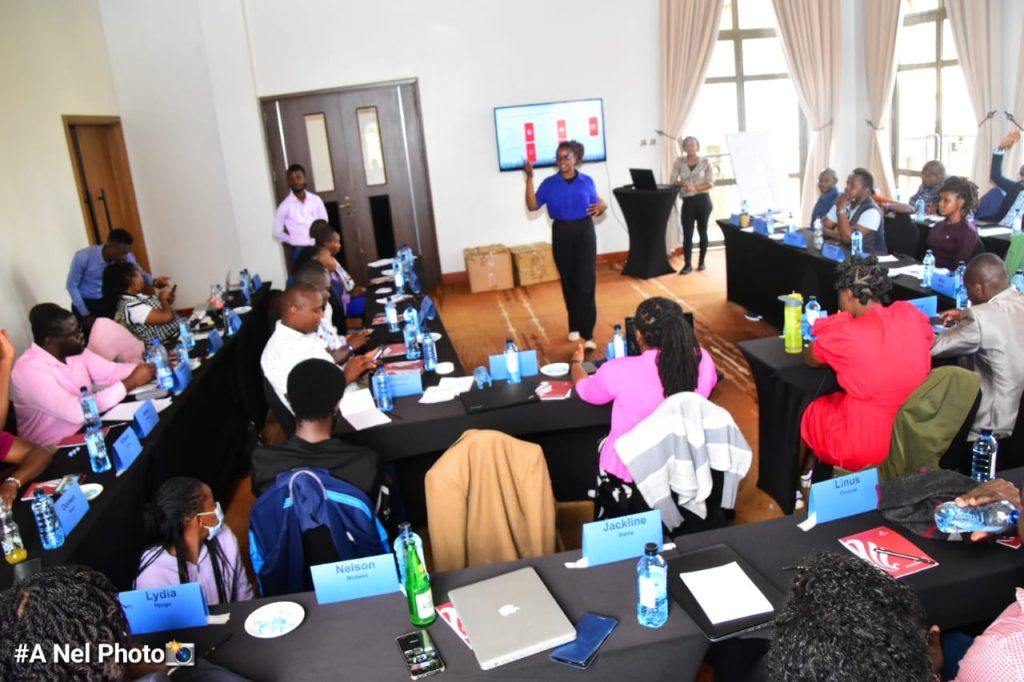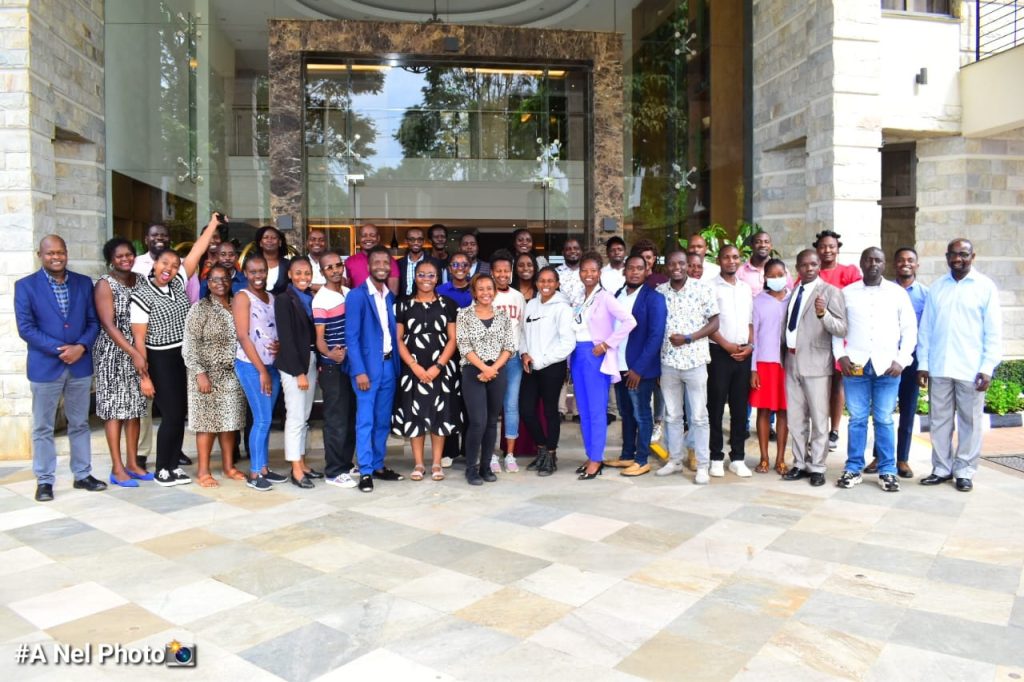Media urged to enhance women’s representation and report GBV responsibly

By Gerald Mukembu
Lecturers from the Aga Khan University Graduate School of Media and Communications have raised concerns over the portrayal of gender-based violence (GBV) cases in the media, emphasizing the need for responsible journalism that upholds women’s rights and human dignity.
The remarks came during a recent three-day Training of Trainers workshop held in Meru Town.
The workshop gathered journalists and media practitioners, where expert lecturers, including Pauline Muriuki and David Andande, shared insights on effective reporting methods concerning women affected by GBV and their circumstances.
They urged journalists to go beyond biased narratives that often diminish the experiences of women and reinforce outdated stereotypes.

“We are calling on the media to dig deeper when reporting on GBV cases and to avoid skewed representations of women. All human rights are vital in achieving human dignity, and it is imperative that we acknowledge the participation and perspectives of women in these narratives,” Muriuki stated.
The lecturers outlined several key principles that journalists should adhere to, including accountability for all perpetrators of GBV, whether they are government officials or individuals in positions of power.
They highlighted the importance of inclusive language, diverse sourcing, and fair representation in media coverage.
Furthermore, the registered complaints regarding media portrayals of women point to an alarming trend of focusing on aspects like age, attire, and personal circumstances rather than the substance of the issues at hand.
Andande, a seasoned journalist with experience at the Daily Nation, stressed, “It is crucial to establish guidelines that ensure fair representation of women and to analyze the stories we report thoroughly.”
The participants were equipped with nine training modules encompassing various aspects of gender issues in reporting, such as a focus on the social constructs of gender, leadership, and emerging issues in media and communications.
Lecturers employed diverse teaching styles including lectures, group discussions, role play, and storytelling to engage more effectively with the audience.
The training comes on the heels of revealing research conducted across East Africa, exposing gender disparities in media representation.
The findings, involving over 15 lecturers, indicate that while women account for about a third of the media workforce in the region, they remain considerably outnumbered in leadership roles.
In Kenya, for example, women lead only 11% of media organizations, a stark contrast to Tanzania’s 40%.
Despite progress in women anchoring news bulletins—where they comprise 43% of primetime news in Kenya-much remains to be done, particularly in features highlighting women’s roles in politics, business, and the economy.

Alarmingly, many stories covering women still receive treatment as less significant “hard news” rather than in-depth features.
This initiative aims to not only improve the representation and treatment of women in the media but also to raise awareness about the social norms and harmful beliefs that perpetuate gender inequality.
The lecturers called for ongoing monitoring of gender representation and a concerted effort to dismantle stereotypes in both media coverage and newsroom operations.
In conclusion, the Aga Khan University lecturers have set forth a strong mandate for media professionals: to champion gender-sensitive reporting that not only advocates for women’s rights but also holds guilty parties accountable in cases of gender-based violence.
As discussions evolve about the role of media in shaping societal norms, there is a critical need for a deliberate shift towards inclusivity and equitable representation of women in all facets of reporting.

